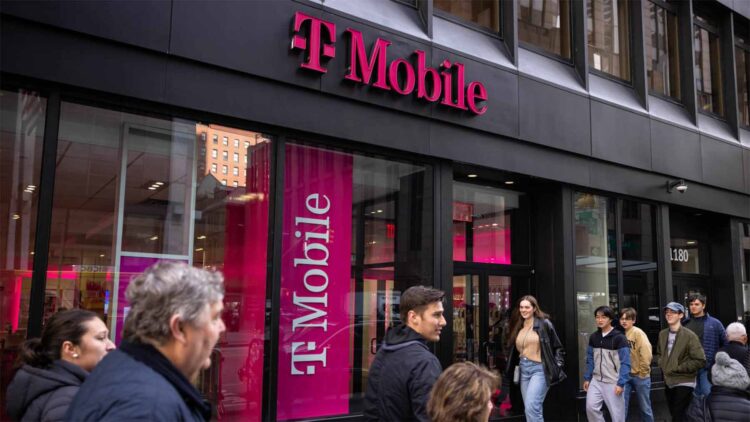T-Mobile announced some changes that have upset many customers: a new late-payment fee of 5% of the overdue balance or $10, whichever is higher. Before, the minimum amount was $7, which make the raise about 43% higher. The discomfort along customers keep growing because it comes at a time of U.S. inflation, and some users feel that it is very difficult for them to make ends meet.
The whole telecommunications industry is trying to adjust the billing policies though; other companies like Verizon y AT&T are also applying new fees.
Analysts from New Street Research say that the company keeps insisting on presenting itself as a market “disruptor,” even though not everyone sees it the same way.
A big number of people are rejecting T-Mobile’s policy changes.
Today, if you are behind your payment, T-Mobile will charge you with 5% of the overdue amount or $10 (depending on what’s higher). Before the limit was $7, and they couldn’t ask for more no matter what. But this change is yet an addition to prior augmentations in some plans.
In social media, some strong critics has been going around. A user wrote: “This is pure nonsense targeting poor people from a nearly trillion dollar company.” Another commented: “Obviously this isn’t an issue if you pay your bill on time. But now with how everything has gone up, this feels like it’s feeding upon those who might have trouble paying their bill one month or they lose their job and have a hard time paying, etc….” For many families, the combination of inflation in the country and higher charges feels like a lot of pressure all of the sudden.
However, the company is maintaining incentives such as AutoPay ($5 discount per line) to balance the billing policies, but the new minimum late-payment fee seems to overshadow any other effort.
Leadership, strategy and what analysts say
Mike Sievert is leaving the CEO position to Srini Gopalan while becoming the new vice chair; the goal now is to push for a “digital-first” model, and the opportunity to manage more procedures trough the app. In fact, some filtered internal documents suggest changes, like centrilize “upgrades,” and new lines and activations only trough T-Life form 2026.
New Street Research pointed out that “the company has gone to pains over the last few months to emphasize that Srini remains focused on being an industry disruptor rather than an incumbent,” and hopes that T-Mobile holds this message. However, not everybody is convinced of this. Again on social media a comment cought some attention: “Who do we talk to to get T-Mobile to stop using the term ‘un-carrier’? This is the most carrier move they’ve made.”
Trump is putting on the table his $499 “Made in the USA” smartphone with a phone service for just $47.45. And Verizon y AT&T are also modifying charges though, and this have people looking for alternatives; a big amount of clients find themselves comparing plans, and evaluating prices and fees to decide where do they feel they have a better cost control.
Quick guide for customers and conclusion
- If you’re not late, they won’t charge you for anything. But, if you are late, now the minimum is $10 or 5% of what you owed (if it’s more than $10).
- If you use AutoPay with a compatible method, you keep the discount of $5 per line (up to 8 lines).
- Check your billing cycle and activate payment alerts to avoid surcharges.
- If your budget is very tight, feel free to compare options carefully between the many companies that are also changing billing policies (but read the small print before any big decisions).
- If you prefer to do procedures in store or by phone, take into account the “digital-first” changes: see what will remain available in the future.

